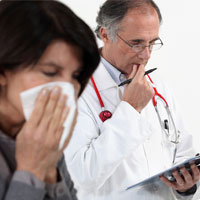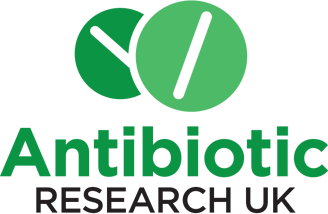
Overprescription of Antibiotics
Overperscription is one of the biggest causes of antibiotic resistance. It is a widespread issue and is one of the focus areas of our education activities. It is vitally important that we only use antibiotics when absolutely necessary. Antibiotics have no effect on viral infections, such as the common cold, yet they are often prescribed for this purpose. Our efforts will focus on:-
– educating GPs in only prescribing antibiotics where absolutely necessary
– educating the public so they understand the difference between viral and bacterial infections. We will also share the long term, worldwide implications of pressuring GPs into prescribing antibiotics where they are not needed.
Intensive Farming Practices
In the UK antibiotics are controlled by veterinary prescription. They can be given to livestock for the same reasons as humans – to manage and treat disease. In some other countries the same controls do not apply. Antibiotics may be freely available without prescription or used for growth promotion purposes in livestock. This practice has been banned in the EU since 2006. It is widely accepted that antibiotic use in livestock globally requires regulation and control. As with humans, treatment of livestock with any antibiotic can lead to emergence of resistant bacteria. This has an impact on animal welfare but also has the potential to pass to humans via animal handling, the food produced or the environment we live in. While animals and humans are mostly not affected by the same antibiotic resistance genes, some genes or bacteria are shared. Some bacteria can transmit resistance from animals to humans – and vice versa – through other means. As part of a global One Health effort, it is important that responsible use of antibiotics in livestock takes place alongside responsible use in humans. We must also make efforts to control the spread of resistance genes in the environment. An important question is how often people with serious infection caused by antibiotic resistant bacteria acquire their infecting bacterium from animals and the food they eat, rather than other sources such as people and the environment. This is still not well understood, but is under intensive study. The role of companion animals in potentially spreading resistance should not be overlooked.

Poor Hygiene Practices in Hospitals
Measures have been taken in recent years to develop and improve hygiene policies and practices in hospitals. You’ve no doubt seen the sanitising gel dispensers everywhere! However, practices are not always followed, or enforced as rigorously as they need to be to prevent the spread of resistant bacteria.

Poor Personal Hygiene
As obvious as it may seem, not everyone observes good personal hygiene practices. The simple act of regularly washing hands can help prevent the spread of antibiotic resistance.

Rapid Diagnosis of Antibiotic Resistant Infections
This topic recently won the Longitude prize given to fund new research areas. The public voted for antibiotic resistance research to be funded rather than other research areas.
Become a member

Emily’s Story
Hear what it’s like living with a Chronic Antibiotic Resistant Infection first hand.Hear Emily’s Story
